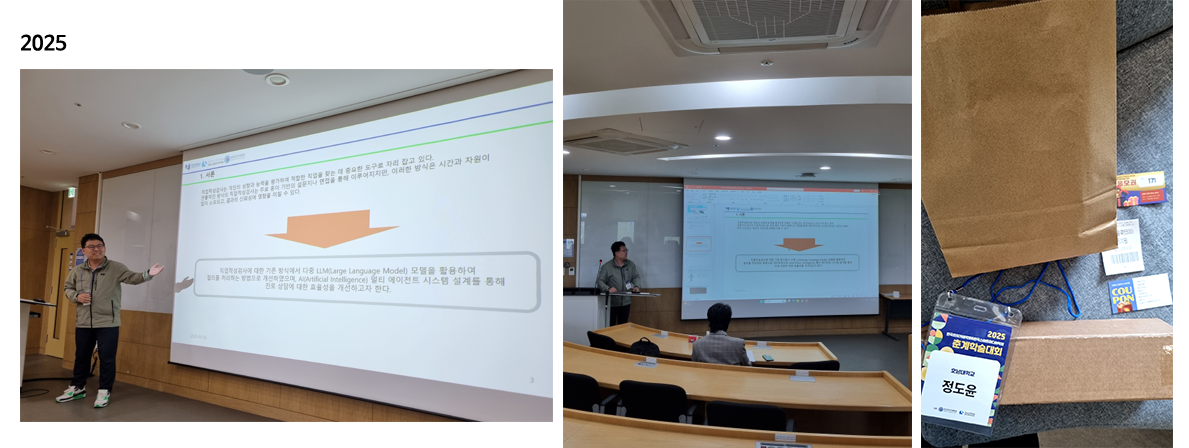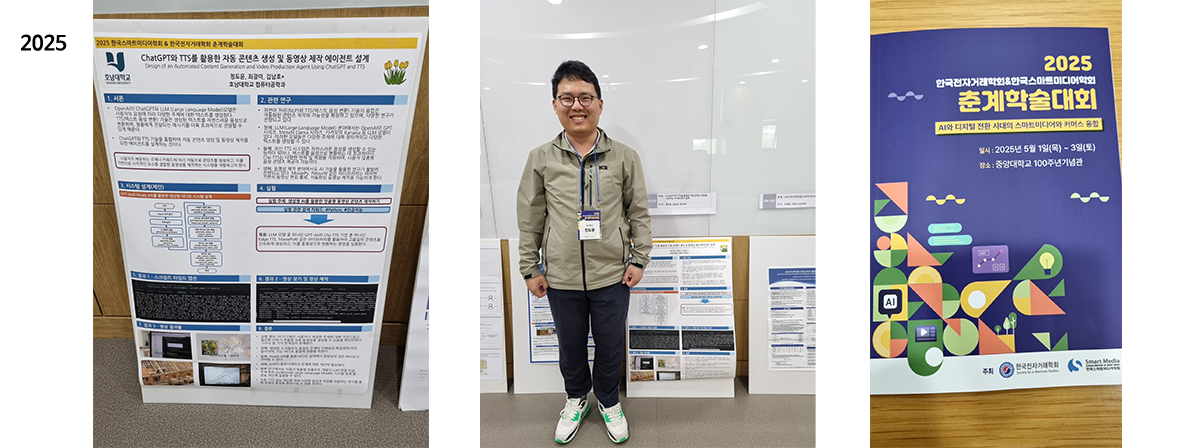Conference
See Google Scholar for a full list of publications.
See Riss for a full list of publications.
2025. Conference 1
2025. 5 Korea Smart Media Society & Society for e-Business Studies Spring Conference
Design of an AI LLM Multi-Agent System for Vocational Aptitude Tests
Section: Oral
Do-Yoon Jung, Gwang-Mi Choi, Nam-Ho Kim*
Department of Computer Engineering, Honam University, Gwangju 62299, Korea

Abstract
This study proposes a design for an AI LLM (Large-Scale Language Model) multi-agent system that processes user queries in aptitude tests. This system, implemented using Llama 3.1 Instruct, establishes relationships between a Master Agency and client agents (Client Agent 1, Client Agent 2, and Client Agent 3). Data transmission and reception are efficiently performed using the asynchronous programming technique await and JSON format. Multiple LLMs can be managed through the Master Agency, and integration with various LLMs, including Llama 3.1 and Kanana 2.1 Base, is possible. Experimental results showed response quality of 1.17 for students, 0.77 for professors, and 0.88 for counselors. The average sentence similarity score was 21.8 for students, 36.6 for professors, and 34.20 for counselors. This system not only enhances the performance of aptitude tests but also provides a method for improving multi-agent interactions within AI-based environments.
2025. Conference 2
2025. 5 Korea Smart Media Society & Society for e-Business Studies Spring Conference
Design of an Automated Content Generation and Video Production Agent Using ChatGPT and TTS
Section: Poster
Do-Yoon Jung, Gwang-Mi Choi, Nam-Ho Kim*
Department of Computer Engineering, Honam University, Gwangju 62299, Korea

Abstract
In this study, we designed an automatic content generation and video production agent utilizing ChatGPT and Text-to-Speech (TTS). To achieve this, we integrated the state-of-the-art language model GPT-4o, Edge TTS, and the video editing library MoviePy. This system automatically generates content based on user requests and then produces videos based on the generated content. The goal of this study is to empower users to create high-quality videos through an efficient content creation process. Experimental results demonstrate that the proposed system generates content quickly and accurately on a variety of topics, while enhancing viewer immersion through natural speech synthesis. This study demonstrates the potential of agent models in content creation and is expected to contribute to the creation of diverse personalized videos in the future.